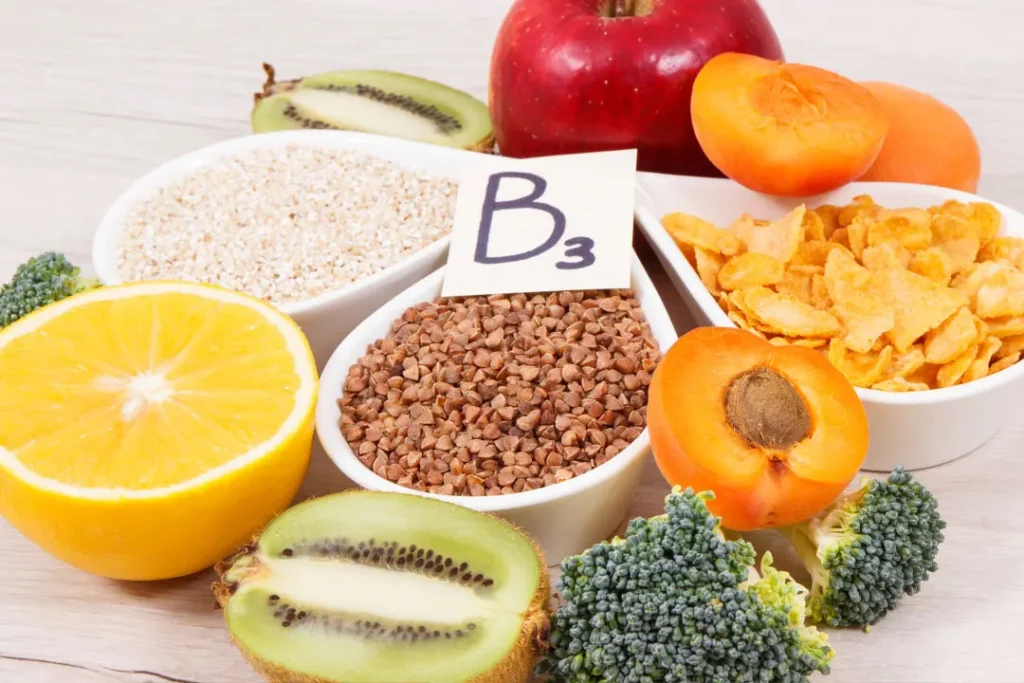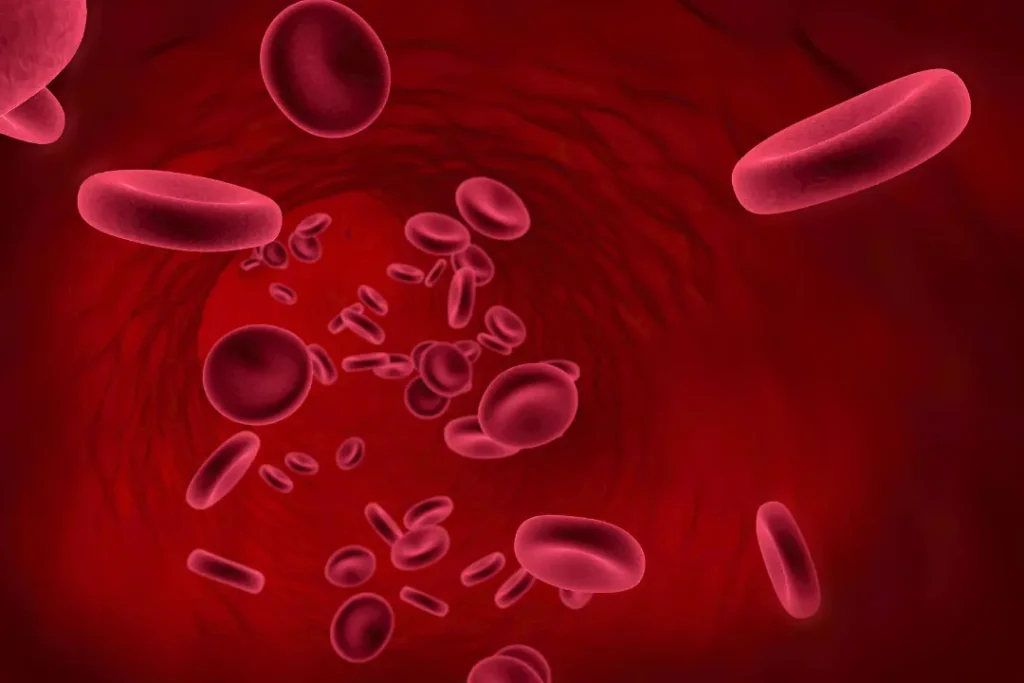The water-soluble vitamin niacin, often known as vitamin B3, is essential for the body’s ability to process carbohydrates, proteins, and lipids. Also, it is necessary to keep the digestive system, skin, and neurological system healthy. Niacin can be found in a variety of foods, including cereals, dairy products, meat, fish, and chicken. It is also available in supplements. For individuals looking to improve their alertness, attention, and cognition, we will cover the nature, health advantages, recommended dosage, side effects, potential drug interactions, and the best responsible usage of niacin in this article.
You May Also Like:
Finding the Best Tryptophan Supplement: 5 Top Brands Reviewed
5 Great Supplement Ingredients to Include In Your Nootropic Stack
Nature of Niacin
As one of the eight B vitamins, niacin is necessary for turning food into energy. Thiamine (B1), riboflavin (B2), pantothenic acid (B5), pyridoxine (B6), biotin (B7), folic acid (B9), and cobalamin (B12) are the other seven B vitamins. Niacin is available in two forms: nicotinic acid and niacinamide (also known as nicotinamide). Although their pharmacological qualities are different, both forms have similar effects on the body. Niacinamide is used to treat skin problems like acne and rosacea, whilst nicotinic acid is used to treat excessive cholesterol levels.

Health Benefits of Niacin
Many health advantages of niacin include the following:
1. Cardiovascular health: Niacin has been proven to raise high-density lipoproteins (HDL) which is known as the good cholesterol while decreasing the total cholesterol of low-density lipoproteins (LDL) which is the bad cholesterol and triglycerides. Avoiding the accumulation of plaque in the arteries, it also lowers the risk of cardiovascular disease.
2. Niacin is essential for maintaining healthy brain function and is involved in the synthesis of neurotransmitters including serotonin and dopamine. It can improve concentration, memory, and cognitive ability.
3. Niacinamide has been demonstrated to enhance skin health by lowering inflammation, hyperpigmentation, and acne.
4. Energy metabolism: Niacin is necessary for the metabolism of meals and the production of energy.

Chemistry of Niacin and Its Physiological Mechanism of Action
In the body, niacin is transformed into the crucial cofactors for various metabolic processes. For instance, nicotinamide adenine dinucleotide (NAD+) and nicotinamide adenine dinucleotide phosphate (NADP+) are two coenzymes that require niacin as their cofactors. In energy metabolism, DNA repair, and cell signaling, NAD+ and NADP+ are essential. Whereas NADP+ is involved in the synthesis of fatty acids and cholesterol, NAD+ is involved in the conversion of glucose into energy.
Niacin is also essential for controlling how genes are expressed. SIRT1, which is implicated in the control of aging and lifespan, is one of the transcription factors it activates.
The control of blood flow is another function of niacin. The smooth muscle in blood arteries is relaxed as a result of the dilatory action of zinc, which increases blood flow. The risk of neurodegenerative disorders can be decreased when your niacin intake is sufficient and while cognitive function can also be improved.

Optimal Dosage of Niacin
Niacin has an adult-recommended daily intake of 14 mg for women and 16 mg for men. Niacin has been used therapeutically at higher quantities, such as to treat high cholesterol levels. The best dosage of niacin for improving cognitive function is not yet to be proven but the majority of studies have employed daily doses between 500 and 2000 mg.
It is crucial to be aware that high doses of niacin have the potential to cause flushing, a harmless but unpleasant side effect characterized by skin redness and warmth. It is advised to start with a modest dose of niacin and gradually raise it over time to reduce flushing.
Side Effects of Niacin
When used according to the recommended daily dose, niacin is typically safe. However, niacin in large levels can have some negative effects, such as the following:
1. Flushing: The most frequent niacin adverse effect is flushing. Redness and warmth of the skin, especially on the face and neck, are its defining features.
2. Niacin can have gastrointestinal adverse effects like nausea and vomiting when used in high dosages.
3. Liver toxicity: Using large dosages of niacin over an extended period of time can result in liver toxicity, which is characterized by increased liver enzyme levels and liver damage.
4. Low blood pressure: For people who already have low blood pressure, niacin’s ability to drop blood pressure can be harmful and result in hypotension.

Potential Substance Interactions with Niacin
Many compounds, including prescription drugs and dietary supplements, can interact with niacin. The following are some substances that niacin may interact with:
1. Blood thinners: When used with blood thinners like warfarin, niacin can increase the risk of bleeding.
2. Diabetes drugs: When combined with diabetic treatments like insulin, niacin can raise blood sugar levels.
3. Alcohol: When used with niacin, alcohol can increase the risk of flushing.
4. Supplements: The risk of bleeding can be increased by the interactions between niacin and other supplements such as fish oil, vitamin E, and supplements containing garlic.
Best Responsible Use of Niacin
Niacin can be used to improve a range of health benefits which includes heart health, skin health, and cognitive function, but it’s important to select a high-quality supplement and adhere to dosage recommendations. MyPEAK Supplements has a product, Brilliance, which is a fantastic source of niacin in a synergistic and highly bioavailable formulation.
Niacinamide and nicotinic acid are both included in Brilliance, and they each have their own set of health advantages. These advantages include better cardiovascular health, skin health, and cognitive performance. Furthermore, Bacopa monnieri, Rhodiola rosea, and L-Theanine, which help improve alertness, attention, and cognition, are all included in the formulation of Brilliance.
To reduce flushing, it’s crucial to start with a modest dose of niacin and gradually raise it over time. It is critical to stop taking niacin and speak with your doctor if you have any negative symptoms, such as nausea, vomiting, or liver poisoning.

Niacin: Conclusion
Niacin is a type of water-soluble vitamin that contributes to good cardiovascular health, excellent cognitive ability, and also great skin health. Niacin is an essential cofactor in various important pathways that generate energy for the body. For instance, niacin is needed as a cofactor for the energy carrier, NAD+ to work efficiently in energy metabolism.
In this regard, choosing a quality niacin supplement such as Brilliance from myPEAK supplements would be an excellent choice as it is a trustworthy and reputable source of niacin. Aside from that, this niacin supplement is also formulated with a synergistic combination of nutrients which improves the cognitive advantages of this supplement. However, it is pivotal for you to seek advice from medical practitioners to know the appropriate dosage and combination that works best for you.
Important Note: The information contained in this article is for general informational purposes only, and should not be construed as health or medical advice, nor is it intended to diagnose, prevent, treat, or cure any disease or health condition. Before embarking on any diet, fitness regimen, or program of nutritional supplementation, it is advisable to consult your healthcare professional in order to determine its safety and probable efficacy in terms of your individual state of health.
Regarding Nutritional Supplements Or Other Non-Prescription Health Products: If any nutritional supplements or other non-prescription health products are mentioned in the foregoing article, any claims or statements made about them have not been evaluated by the U.S. Food and Drug Administration, and such nutritional supplements or other health products are not intended to diagnose, treat, cure, or prevent any disease.


